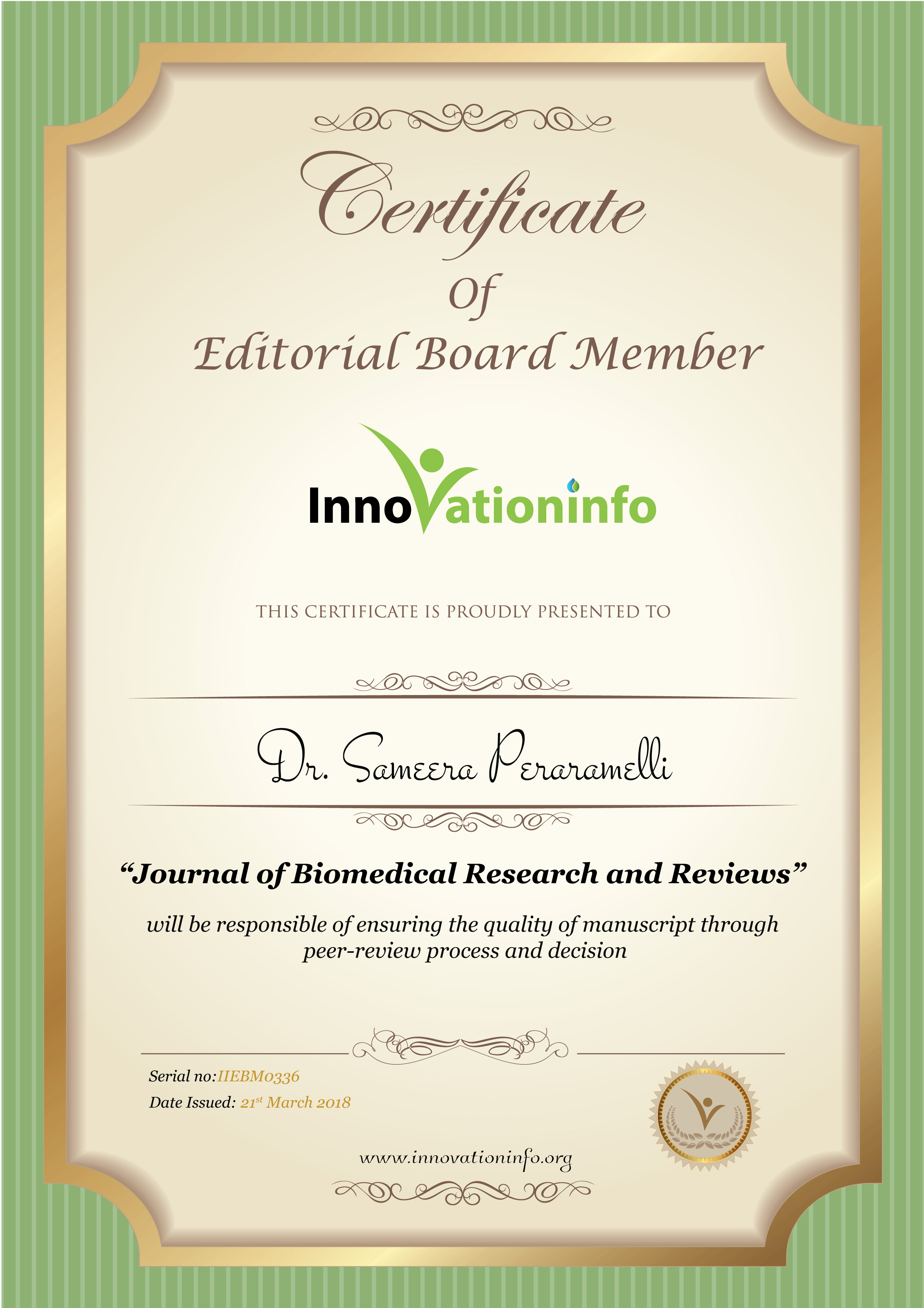Dr. Sameera Peraramelli
Journal of Biomedical Research and Reviews
Hematology

Name: Dr. Sameera Peraramelli
Educational Qualification: Ph.D.
Designation: Post doctoral scholar, USA
Department: Hematology
University: Stanford School of Medicine
Email: sameerap@stanford.edu
Research Interests: Her long-term research interests involve the development of a comprehensive understanding of the interactions between blood coagulation abnormalities in cancer patients. Her plan is to lead the research to study the inter-link between blood coagulation and cancer biology (malignant and non-malignant hematology). Cancer patients have coagulation abnormalities, these abnormalities in turn aid the tumor progression. She worked on blood coagulation factors during my PhD and attained comprehensive insight into the mechanism involved in careful regulation of coagulation factors. She acquired knowledge of molecular biology, biochemistry and enzymatic kinetics by handling multiple projects during her PhD dissertation. Now for her postdoctoral research, she is working with mouse melanoma model to understand the role of osteopontin and its cleavage products in tumor development. Specifically she is interested in studying three primary topics. 1) Development of bifunctional therapeutic approaches targeting the malignant tumors and resolving the coagulation abnormalities; 2) Investigating the biomarkers for cancer patients with higher risk of developing the coagulation disorders hence preventing the thrombohemorragic events; 3) Novel therapies to manage cancer patients with thrombosis and hemorrhages.
Biography: Dr. Sameera Peraramelli earned her PhD in Biochemistry with a focus on blood coagulation inhibitors at Maastricht University, the Netherlands in 2015. She joined Department of Hematology, Stanford school of medicine as a hematology and cancer biology postdoctoral scholar in 2016. She is interested in understanding the role of thrombin cleaved osteopontin in growth and progression of cancer. Dr. Peraramelli has received young investigator award at International Society of Thrombosis and Hemostasis (ISTH) 2017 for this work.
1. Peraramelli S,Suylen DP, Rosing J, Hackeng TM (2012) The Kunitz 1 and Kunitz 3 domains oftissue factor pathway inhibitor are required for efficient inhibition of factor Xa. ThrombHaemost 108: 266-76.
2. Peraramelli S, Rosing J, Hackeng TM (2012) TFPI-dependent activities of protein S Thromb Res 2:S23-6.
3. Peraramelli S,Thomassen S, Heinzmann A, Rosing J, Hackeng TM, Scheiflinger F, Hartmann R, Dockal M (2013) Direct inhibition of factor VIIa by TFPI and TFPI constructs. J ThrombHaemost. 11:704-14.
4. Peraramelli S,Thomassen S, Heinzmann A, Rosing J, Hackeng TM, Scheiflinger F, Hartmann R, Dockal M (2014) Inhibition of TF:FVIIa-catalysed FIX and FX activationby TFPI and TFPI constructs. J ThrombHaemost 12:1826-37.
5. Peraramelli S,Thomassen S, Heinzmann A, Rosing J, Hackeng TM, Scheiflinger F, Hartmann R, Dockal M (2016) Role of exosite binding modulators in the inhibition of FXa by TFPI. Thromb Haemost 115:580-90.

Serial no:IIEBM0336
Guidelines
Subscribe

This work is licensed under a

